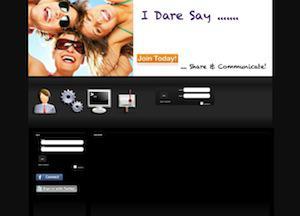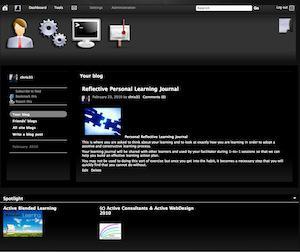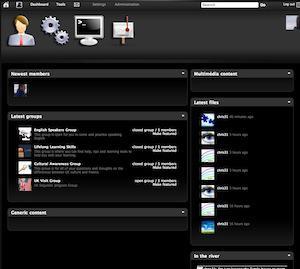
Social Media, it just trips off of the tongue doesn’t it?
But what do we mean exactly by social media?
Isn’t all media, by definition, social, in as much that it is intended for groups of people to consume, to inform to educate, persuade and convince?
Now that may be the case but the two words now form an indissociable colocation, that encompasses the likes of Facebook, Twitter, MySpace, YouTube, and Linked-in to name but a few.
The jury is still out on whether, in fact, these new technologies of the web 2.0 (or maybe web 3.0) generation can actually bring about any meaningful learning, but there are many that will defend to the death the notion that social media does just that.
How measurable are the metrics of social media in learning, there we start to enter some rather gray areas.
This begs the question of whether learning, in fact needs to be measured anyway and what benchmarks can be used to ‘effectively’ measure learning as quite frankly some testing methods are so unidimensional that they actually give a very distorted view – and often do not portray results linked to learning but more towards achievement testing.
Social Learning theory as put forward by Albert Bandura et al., argues that learning occurs within a social context, where learners learn from each other through modeling and observation – could this be enhanced through Social media?
So, that is a very rough idea of social learning theory, and as it appears to be ‘flavour of the month’, let’s have a quick look at what it actually is through the general principles of social learning.
- Learning happens through observing behavior and outcomes of the behavior of others.
- There doesn’t need to be change involved in terms of behavior for learning to occur. (Which is in direct opposition to behaviorist theories of learning).
- Cognition is involve in learning in as much as, reinforcements or censure can affect people’s behaviors.
- There are 4 aspects to Social Learning – Motivation, Retention, Attention and Motor Reproduction.
- Social Learning acts as a halfway house between Behaviorism and Cognitive Learning theory.
I’m not saying that social media is social learning, nor that it can be used to facilitate learning as a stand-alone, but there must be a case for Social media as a tool for facilitating collaborative learning, when structured and organised with that end in mind.
However, it just doesn’t happen like that, it needs engagement and clear strategies and an acute ability to filter-out the dross that is a common feature of most social networks.This becomes especially important due to the fact that about 85% of all learning happens in an informal setting, which is a huge proportion, when compared to the 15% that goes on in formal learning.
This said, there needs to be a clear business case for the adoption of social media as a channel for learning, especially as most organisations will clearly state that their most pressing problems lie in the overwhelming volumes of information that flood into the organisation, which, in turn, poses other problems such as lacks of concentration, diffusion, overload, stress and interruptions that eat-up the workday.
This, in fact, brings together in one lot, most of the objections that I come across daily whilst trying to implement social media in a learning context and this is where it is so important to have clear metrics that speak louder than words.
I firmly believe in the potential of social media as a tool to facilitate collaborative learning as a communication tool to bring people together, although anybody who has any experience of social networks will know that it just doesn’t happen ‘like that’.
You can take a horse to water … if there is a lack of continual input, there there will be very little output – “Content is King” may still ring true as far as social media is concerned, so too is variety.
Those who have spent any time with social media may also agree that there are certain personalities that are more suited than others to the virtual world of social media – people who have something to say, on the other hand there are those who have lots to say with very little substance, constantly churning out the same old motivational quotes – it may be difficult to see how this can help learning though.
I’m not talking about the odd quote that catches the eye, that one may wish to share with others – here I mean the Constant and incessant quote-dropping.
If one intends to use social media as a tool to facilitate learning, then the facilitator needs to take on the persona of the constant questioner and conductor, uploading content is great, but it doesn’t stop there!
The facilitator needs to be clear about the objectives of the learning event that they want to pursue with learners and then the real work starts – it is not enough to upload sexy, all-singing-all-dancing content if there is no thought put into how it will be used and then how the facilitator will monitor and ‘animate’ the material around the learning community.
If any form of learning is going to workacross an organisation there needs to be a paradigm shift and a culture change to one of a learning organisation, where learning is more the norm than that which is the protected domain of a selected few, which means that there needs to be buy-in from top management and that learning is valued as a commodity that is the lifeblood and the future of the organisation and its most precious resource.
This is especially true of social media in learning, which is so often compartmentalised and banalised as some sort of gadget for teenagers – ah, it can be used as that too!
This is another objection in organisations, where Facebook and Linked-in are linked with either time-wasting or perhaps even looking to find another job (this is what I hear a lot of) – some companies even ban the use of social networks in the workplace, but have no problem when their employees answer mails or prepare presentations at home into the early hours.
Managers, although purporting to be agents of change, are often very suspicious of change and often see social media as almost treading on their toes by giving free rein to communication that they have difficulties controlling – it is often difficult for some to understand that they don’t have to control it – the very fact that it is open and free is often a great thing within the organisation.
Others worry about the time ‘wasted’ on social networks such as Facebook or Twitter, not considering any of this as any form of learning.



For example people working in UK or the South of France and paris are now able to seamlessly communicate and share information effectively, which is great for knowledge management, communication, learning and collaboration between departments and countries.
One example is an in-company intercultural
wiki based around the difficulties of managing offshore IT production, where experienced people contribute alongside newbies on the intercultural differences of working between India, France and the UK – these people would never have spoken before, let alone shared knowledge, information and experiences, which creates a buoyant synergy across the organisation.
Of course critics will refer to the way that communication is carried out on social media sites – Twitter with the 140 characters and the way that people browse and select information as they would in a supermarket – people don’t read books any more (ah, but what about Kindle and iPad?).
Well of course they do, but there are ways that the Internet has changed the nature of ‘knowledge-getting’ (I resist the use of the word learning here) – but that is just the way things are now and we aren’t going to change this, but perhaps social media can help us exploit and tap-into this ‘new’ methodology (maybe that’s a too strong word too).
On-screen reading is not as effective as reading and noting on hard copy, but there are many of us who print-off complex or long documents, as we are all well aware of this.Social media, in my opinion can be effectively used to facilitate learning, but the tool needs to be well anchored in a pragmatic blend alongside a clear transformation of the way that learners are helped to manage their learning and indeed the way that they learn-to-learn with a relatively new form of ‘content-holder’, as ultimately that is what it is.
© 2011, ©Active Consultants 2011. All rights reserved. Copying in part or in entirety only permitted by written consent
Republished by Blog Post Promoter

